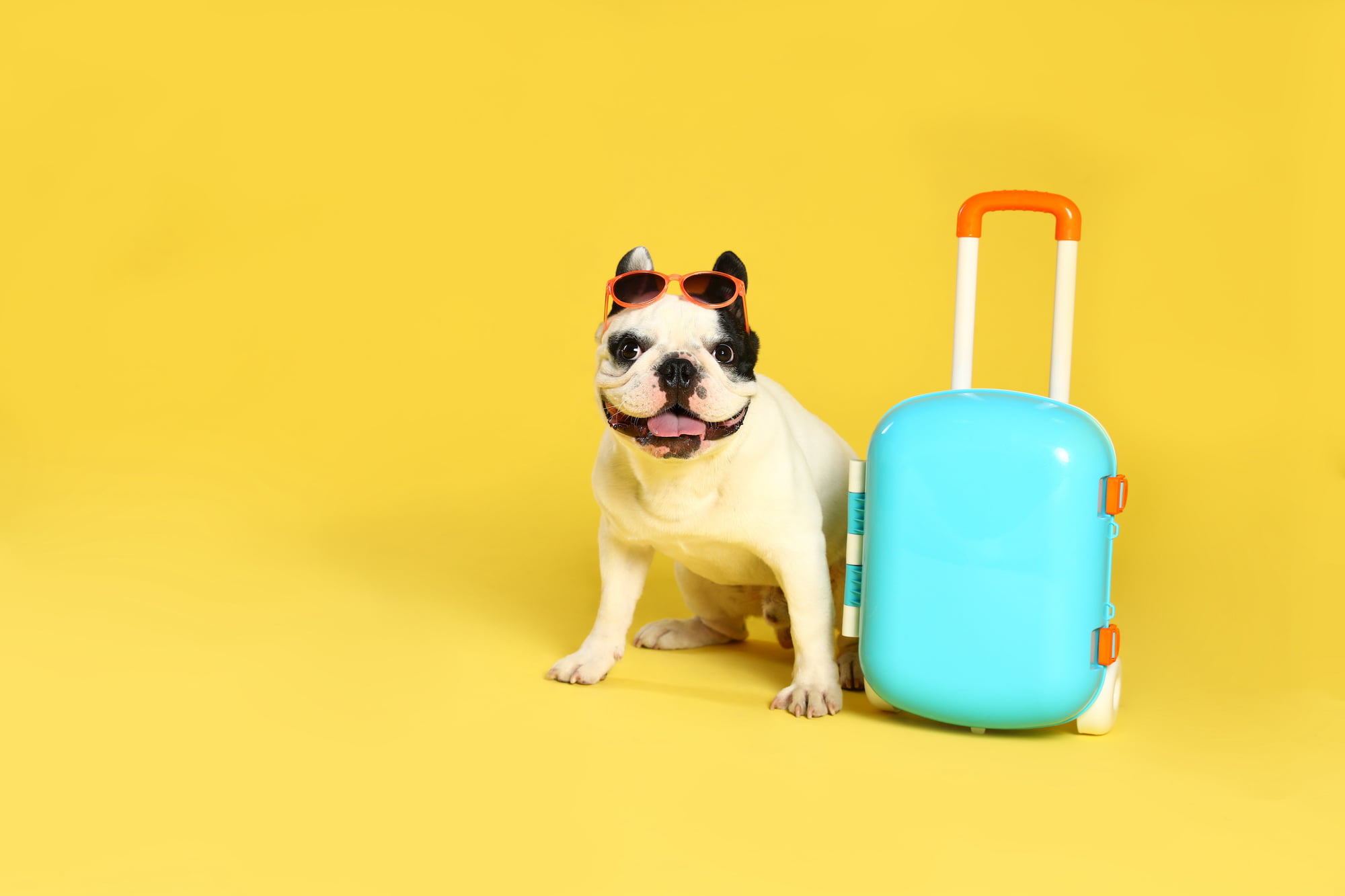Wag More, Bark Less
It’s pretty simple. Dogs shed, poop, and make noise. It’s a small price to pay for having a loyal, fuzzy companion to call our own. But incessant barking is irritating. Not just for owners, but neighbors and passersby as well. It’s necessary for dogs to bark in order to communicate, but that doesn’t mean it can’t be controlled in order to preserve your sanity.
Give Safe Journey Dog Boarding a call when you’re planning your next trip – dog boarding is a safe, affordable option for caring pet owners. Let us know what behavior changes you’ve been working on with your dog and we’ll do our best to help keep the discipline strategies consistent with what they’re used to at home. We’re your local choice for dog daycare and dog behaviorist Portland!
So, why do dogs bark?
Dogs bark for a lot of reasons. And it’s not always because they sense a threat. Barking can be motivated by boredom, anxiety, and loneliness, too. By allowing your dog to bark whenever they like only makes it harder to manage when you need them to be quiet.
So, as with most things, start early with barking discipline. They’ll catch on sooner and your efforts will be more effective more often. If you’ve had your dog for years and have never attempted to control their barking, however, don’t worry. There’s work and patience involved, but it’s not hopeless.
Techniques to Stop Barking
- Keeping them active
- Ignoring the barking
- Rewarding quiet
- Exposure and reward
- Managing his/her behavior by removing stimulus
1. Keeping your dog active and engaged
If a pup has been cooped up all day, chances are he or she will take every opportunity to express themselves vocally. As much as possible, take them on walks, runs, or play fetch with them. Having another dog around for them to play and wrestle with is also helpful in burning off some extra calories. Mental exercise is just as effective at tiring them out as physical – try working on some tricks or training techniques a couple of times a day.
2. Ignoring the barking
 This might be the toughest technique, but here’s why it’s important. By constantly responding to your dog’s barking, either by yelling, shushing, or petting, you are essentially encouraging their behavior. Even if they quiet down temporarily after you yell, shush, or pet, it’s not a long-term solution. They will repeat the same behavior, again and again, each time the stimulus presents itself. Every time someone walks by the yard knocks at the door or turns on the blender, expect a bark-storm. But this is a two-part strategy…
This might be the toughest technique, but here’s why it’s important. By constantly responding to your dog’s barking, either by yelling, shushing, or petting, you are essentially encouraging their behavior. Even if they quiet down temporarily after you yell, shush, or pet, it’s not a long-term solution. They will repeat the same behavior, again and again, each time the stimulus presents itself. Every time someone walks by the yard knocks at the door or turns on the blender, expect a bark-storm. But this is a two-part strategy…
3. Rewarding quiet periods
Any attention they receive from you is seen as a reward. So, when they start barking, ignore them until they stop. Once quiet, reward them with their favorite treat. It’s important to be consistent with this technique and reward quiet periods even if they’re short, then work up to longer periods – rewarding after ten seconds of quiet, then one minute, etc. This works especially well when your dog needs to be confined in a crate. As they start noticing that being quiet earns them a reward, the quiet periods will become longer.
4. Exposure and reward
A little more focused strategy is required for dogs that bark at people or other dogs. Have a friend and their dog help you by coordinating a little desensitization technique. Have your friend and their dog stand far enough away from you and your dog that no barking occurs. Feed your dog a generous amount of treats, and as your friend and their dog approach, keep offering treats. This creates an association between the presence of others and rewards. But remember that your reward won’t be as immediate. You may have to repeat this technique many times over a period of weeks or months before seeing the results you’re looking for.
5. Managing behavior by removing stimulus
This technique works best if you are at home and stands on its own if you are not ready to try more focused strategies. And as such, it’s much simpler. Remove the thing that causes your dog to bark. This may take a bit of investigation if the culprit not obvious. Dogs can bark at things not immediately apparent to us, and we must remember that, like garden weeds, barking is natural. It’s is not an inherent problem until we decide it is. So, once you’ve identified the stimulus, block it. This can mean turning on a white noise machine or radio, closing doors and windows, or creating some other sensory barrier.
Final Tips for Managing Your Dog’s Barking
Dog ownership should be fun and comforting. So, do the work upfront to maximize those rewards for yourself as well as your dog. With these techniques, remember that consistency is key. A week of training is rarely enough. It needs to be part of a routine practice until it’s automatic. Training can be frustrating for both of you but do your best not to yell. It’s all part of making this a positive and energizing experience for everybody.
It’s never any fun for dogs to be left alone overnight, even if someone stops by once a day to feed them. And if their barking is bothering the neighbors, you may have another problem on your hands. Whatever stage your dog’s barking habits are in, dog daycare in Portland is a great way to help with socializing and desensitizing them to the presence of other dogs.

